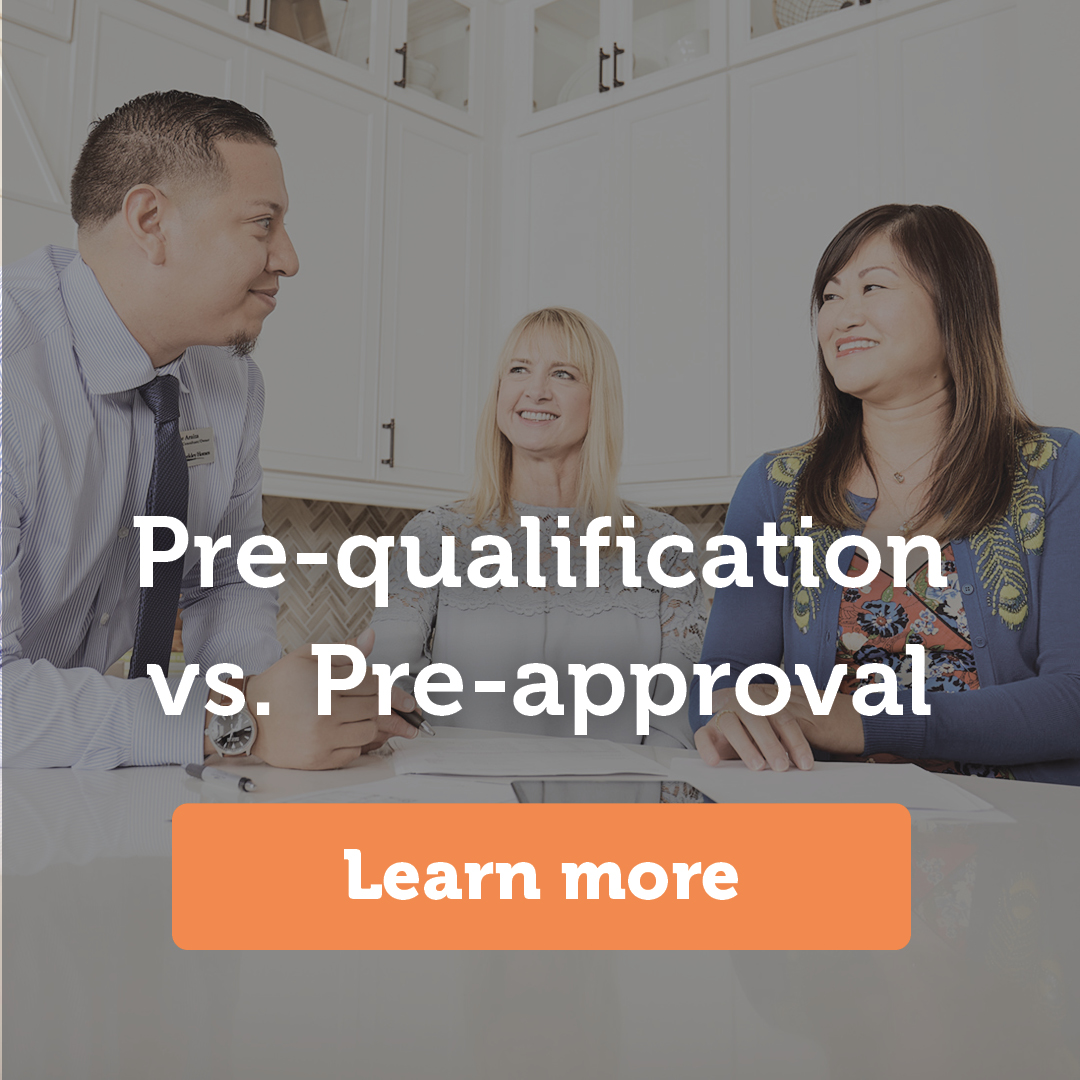Published May 15, 2025
The Guide to Buying Your Home
As a home builder with the Purpose of Building Dreams, Enhancing Lives, David Weekley Homes strives to make the homebuying process easy and enjoyable for our Customers.
In the years since our company’s launch in 1976, we’ve gained a great deal of experience and honed our skills at helping our Homebuyers navigate everything from prequalifying for a mortgage to anticipating costs once you’ve closed on your home.
Whether you’re a first-time Homebuyer or on the hunt for your forever home, this comprehensive guide draws upon the knowledge we’ve compiled over our nearly 50 years in the industry to walk you down a well-lit path to your new home.
Let us be the first to congratulate you on this exhilarating time in your life!
Where to Begin Your Homebuying Journey
Your Credit
A wise initial step in your homebuying journey is to ensure you have a solid financial reputation. You are about to apply for a large loan, and you’ll need the approval of a mortgage lender and their underwriter to transition from Homebuyer to Homeowner.
Begin by determining your current credit score and explore ways to increase it, such as paying down credit card debt, paying bills on time and limiting major expenditures. It's also a good idea to request credit reports from all three credit bureaus: Equifax, Experian and TransUnion. Check them for accuracy and contest anything that isn’t correct.
Your Budget
As you improve your credit score, you can also shed some light on your homebuying power and establish how much home you can comfortably afford. While your improved credit score could go a long way in helping to determine your interest rate, there are other factors in your financial portfolio that can reveal your mortgage loan sweet spot.
Your income is perhaps the number one factor, balanced against any money you owe, which is called your debt-to-income ratio. Ideally, you’ll want your monthly mortgage payment to be 28% or less and your monthly debt to be 36% of your monthly income or lower. Mortgage calculators are invaluable tools for learning your future mortgage payment, taking current mortgage loan rates into account.
Your Savings
Lastly, in preparing to buy a new home, one of the best moves you can make is to get thrifty. Examine your current spending, determine what can be cut, and begin redirecting that money to your savings account for a future down payment and closing costs. The more money you put down, the less you’ll need to borrow and the lower your monthly payment can be.
If you can make a 20% down payment on your home, you won’t need to add Private Mortgage Insurance to your monthly mortgage payment.
Start Your New Home Search
Now that you have a clearer idea of how much home you can afford, the real fun begins. A quick search will find you browsing new homes under construction and learning more about the communities that surround them.
Take some time to learn more about the towns and cities where they are based, such as the quality of the schools, the convenience to commute routes and employment hubs, the local parks, shops, restaurants, and entertainment. Research anything that holds personal appeal for you and the ones you’ll share your home with.
Once you’ve made a list of interesting areas, appealing communities and homes that fit your wish-list, it’s time to visit them up close and in person. Depending on where you are in your homebuying journey – from fact finding to packed and ready to move – you may want to skip to the next step and get pre-approved for a mortgage so you’re ready to buy the minute you find “the one.”
Secure Your Mortgage Pre-Approval
If you’re a first-time Homebuyer, this part of the homebuying journey may seem a tad daunting. Our article, , breaks it down into three easy steps.
Find A Preferred Lender
If your plan is to purchase your new home sooner rather than later, it might be time to find a mortgage lender and secure pre-approval for a loan. The homebuying landscape has become increasingly competitive in recent years, and a pre-approval letter could give you the upper hand in showing you’re serious about buying a home.
Once you’ve done your home and community research and found the best home builder who resonates with your style and needs, check to see if they have a Preferred Lender. There may be incentives to work with a builder’s Preferred Lender, such as savings on closing costs or other financing incentives.
Explore Loan Options
When you contact your prospective new mortgage lender, ask which mortgage options may apply best to your situation. For example, if you or your spouse served in the U.S. military, you could qualify for a VA loan, guaranteed by the U.S. Department of Veterans Affairs. If your credit score isn’t yet where you’d like it to be, an FHA – short for Federal Housing Administration – loan may be a wise choice for you.
In the event that neither of those scenarios applies to you, a conventional 15- or 30-year loan may be the best option. By building a solid relationship with a reputable mortgage lender, you can explore together the best avenue for your future home loan.
To do a little early research on VA loans before your visit with a loan officer, read our Advantages and Disadvantages of VA loans article.
If an FHA loan seems like a plausible option for your financial situation, learn the advantages and drawbacks in our article about FHA loans.
Shop Confidently
The pre-approval process involves a credit check, a completed mortgage application and the provision of any financial information your prospective mortgage lender requests. Once you’ve completed those tasks and the lender is happy with your financial status, they will provide you with a letter stating that you are pre-approved for a mortgage loan for a certain amount. This accomplishes two key factors: 1) It gives you a loan amount for which you can shop for homes; and 2) it lets the seller know you are a legitimate buyer with a lender to back you.
Protect Your Investment
Once you’ve been pre-approved, found the home of your dreams and signed a contract to purchase the home, chances are you’re emotionally invested. You’re arranging furniture in your mind and daydreaming about future get-togethers with family and friends. While you are not yet fully invested financially, you soon will be, and it’s essential to protect that future investment.
Homeowners Insurance
One of the best ways to do that is through homeowners insurance, which will safeguard your new home and its contents from the moment you leave the closing table until the day you decide to sell it. If you’ve owned a home before, chances are you already have a relationship with an insurance company that can offer coverage for your new home.
If you’re a first-time Homebuyer, the same company that provides coverage for your automobile may also offer homeowners insurance. Your agent can walk you through your homeowners insurance policy requirements and any additional recommended coverage.
Home Inspection
Prior to closing day, you may also want to schedule a home inspection with an independent, third-party professional home inspector. Their home inspection may reveal any structural, electrical or foundation issues requiring repair before you close.
Because you don’t yet own the home, you’ll need the approval of your builder for the inspector to access the property. Ask your builder what credentials they require of your professional home inspector before you hire one. For instance, they may require them to be part of a professional association, such as the American Society of Home Inspectors, and/or to carry Errors and Omissions insurance.
Determine Your Monthly Costs
While the rewards of owning your own home are many, if you’re buying your first home or upsizing into a larger home to accommodate changing lifestyle needs, new costs will likely be involved.
Property Taxes
For one, you can expect to pay property taxes. You may opt to pay them once a year or place a portion of your monthly mortgage payment into escrow to help cover them when they come due. Traditionally assessed every five years, property taxes are based on several factors, including the county and state where you live, the property’s size, construction type, age, and more.
Other Mortgage Line Items
Beyond the property taxes and homeowners insurance, you may tack onto your monthly mortgage via escrow payments. Other costs you can expect to have rolled into your new mortgage payment include:
- Principal and interest (the cost of your home after your down payment and interest on the loan)
- Private mortgage insurance (if you are unable to pay a 20% down payment)
- Homeowners association dues
Recurring Non-Mortgage Expenses
You may witness an uptick in your utility bills, particularly if you’ve opted for a larger home. If you’re coming from an apartment, you’ll find that landscaping also comes at a cost – whether you hire a landscaper to do the work for you or invest in lawn care equipment and do it yourself.
You may also have costs related to furnishing and maintaining your new home, purchasing a security system and service, and making any necessary repairs when needed.
Prepare for Closing Day
Your mortgage lender will prove an invaluable resource as you make your way to closing day. You’ve worked hard to get here and don’t want anything to steal your joy as you transition from Homebuyer to Homeowner. To that end, it’s essential you know what costs to expect and what paperwork to provide in the months and weeks leading up to your closing day, which will end with you being handed the keys to your brand-new home.
Closing costs are typically between 3-5% of your home’s purchase price and include:
- Down payment
- Fee for loan application/origination
- Title search and insurance
- Taxes
- Lender costs
- Expenses such as homeowners insurance, mortgage insurance and an initial escrow account
Much of the paperwork you can expect to sign at closing will comprise:
- Closing disclosure with the final loan terms and closing costs
- Loan application
- Promissory note with your good faith commitment to pay the loan back
- Deed of trust to secure the loan
- Deed – transferring property ownership from the seller to you
- Legally binding affidavits, ensuring that all the information you’ve provided is accurate
- Initial escrow disclosure reflecting costs that extend beyond the loan to include property taxes, homeowners insurance and HOA dues
- Certificate of occupancy that shows your home is in compliance with building codes and is suitable for occupancy
Although the road to homeownership can seem daunting and mysterious, it can also be among the best moments of your life, particularly when you are handed the keys to your new home and cross over the threshold for the first time as its new owner.
From all of us here at David Weekley Homes, we wish you many happy years of many wonderful memories made in your new home!





















